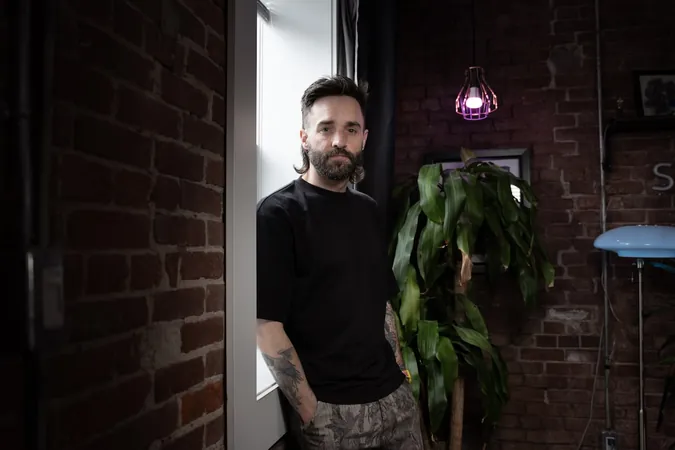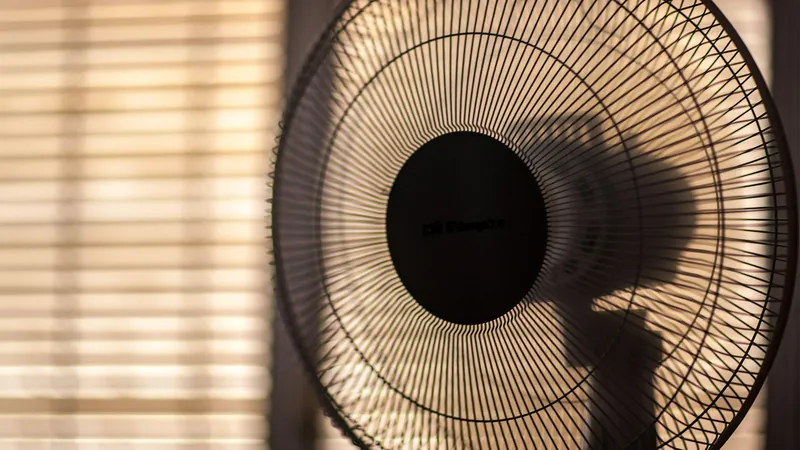
Groundbreaking Cystic Fibrosis Drug Offers Hope, Reduces Hospital Visits – But Is It Worth the Price?
2024-11-21
Author: Sophie
Introduction
Jeremie Saunders, a 36-year-old podcaster from Halifax, can attest to the profound impact of Trikafta, a revolutionary medication for cystic fibrosis (CF). Before starting this life-altering treatment in November 2021, Saunders experienced a steady decline in health, facing frequent hospitalizations due to pneumonia and severe chest infections. With a lung function plummeting to just 50%, his future seemed uncertain.
Impact of Trikafta
However, after just two months of taking Trikafta, Saunders saw a remarkable improvement in his lung function, soaring to 83%, and has managed to avoid hospital admissions ever since. His experience reflects a broader trend among CF patients using Trikafta, corroborated by a new report from the Canadian Institute for Health Information (CIHI). According to the report, hospitalization rates for CF patients dropped by an astounding 65% in the year following the initiation of the drug, while emergency room visits decreased by 20%, and the necessity of antibiotics fell by 58%.
Cost Analysis
Despite its incredible effects, Trikafta comes with a hefty price tag of over $300,000 per patient each year, positioning it as one of the world's priciest medications. Fortunately, nearly all Canadian patients benefit from significant taxpayer coverage, receiving around 90% of the medication's cost reimbursed.
Quality of Life Improvements
"While Trikafta is yielding positive outcomes in reducing hospitalizations and freeing up healthcare resources, it also enhances the quality of life for patients," Tracy Johnson, director of pharmaceuticals at CIHI, noted. Cystic fibrosis is caused by genetic mutations that lead to the production of thick mucus, posing severe risks including chronic lung infections and early mortality. Trikafta works not by correcting the genetic defect but by helping the malfunctioning protein function more effectively, thus drastically improving overall health.
Hospitalization Costs
The CIHI report reveals that for 683 patients analyzed across six provinces, hospital costs plummeted by 74.5%, from nearly $7 million in the year before starting Trikafta to around $1.75 million in the year after. Yet, this raises a crucial question regarding sustainability and cost-effectiveness.
Economic Sustainability Concerns
Michael Law, Canada Research Chair in Access to Medicines at the University of British Columbia, cautions that if public drug plans were to pay the full list price for Trikafta, treating the 683 patients would cost taxpayers almost $210 million annually. When Canada’s Drug Agency evaluated the medication for patients 12 and older, it determined that to be deemed cost-effective, the price would need to be slashed by at least 90%.
Understanding Hidden Pricing
"Understanding the value of Trikafta requires weighing its clinical benefits against its substantial costs," emphasized Dr. Law. Despite observable financial savings for hospitals, these do not appear to match the significant expenses associated with the medication.
Impact of Drug Costs
Another complicating factor in evaluating the economic impact of Trikafta is hidden pricing: the publicly available list prices often do not account for the undisclosed discounts that pharmaceutical companies negotiate with public drug plans. For instance, provincial and territorial plans reportedly spent $285 million on Trikafta in 2022 before factoring in such discounts.
Long-Term Outcomes
Additionally, savings from Trikafta may not fully materialize until well after the drug's introduction. Notably, data from the Canadian Cystic Fibrosis Registry indicates a drop in transplant procedures from CF patients—from 62 in 2018 to just seven in 2022—suggesting a substantial decline in severe cases as a result of improved treatment accessibility.
Personal Testimony
For Jeremie Saunders, the benefits of Trikafta have transcended statistics. Previously compelled to live for the moment due to his deteriorating health, he now relishes newfound freedom. A simple outing with his dog, Donut, became a moment of revelation when he triumphantly ascended Citadel Hill without losing his breath. "That was the moment," he shared, reflecting on the remarkable transformation he experienced, "where I could truly grasp how life-changing this medication has been."
Conclusion
As healthcare systems navigate the costs of treating chronic illnesses like cystic fibrosis, the dialogue around Trikafta's price and its transformative benefits continues to unfold. Will this high-price, high-impact drug redefine how we approach treatment for genetic disorders? The conversation has only just begun.









 Brasil (PT)
Brasil (PT)
 Canada (EN)
Canada (EN)
 Chile (ES)
Chile (ES)
 España (ES)
España (ES)
 France (FR)
France (FR)
 Hong Kong (EN)
Hong Kong (EN)
 Italia (IT)
Italia (IT)
 日本 (JA)
日本 (JA)
 Magyarország (HU)
Magyarország (HU)
 Norge (NO)
Norge (NO)
 Polska (PL)
Polska (PL)
 Schweiz (DE)
Schweiz (DE)
 Singapore (EN)
Singapore (EN)
 Sverige (SV)
Sverige (SV)
 Suomi (FI)
Suomi (FI)
 Türkiye (TR)
Türkiye (TR)